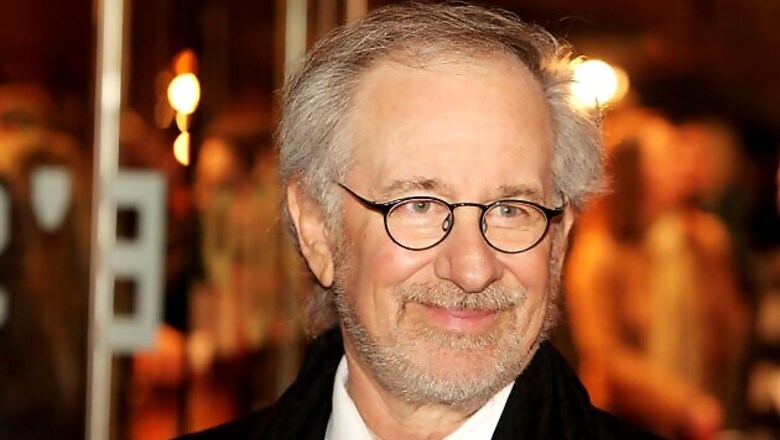
views
New York: Steven Spielberg offered a cinematic vision of President Abraham Lincoln's battle to outlaw slavery in 'Lincoln', which had a sneak preview that is already generating early buzz of awards for star Daniel Day-Lewis.
After a screening at the New York Film festival on Monday, Spielberg acknowledged the pressure of bringing to the big screen one of America's most revered political figures, and he side-stepped questions about its relevance to current politics ahead of the November 6 US presidential elections.
To audience laughter, Spielberg said he had deliberately sought to avoid such entanglements by asking for a release date after the elections. 'Lincoln' is due for limited release November 9 and timed for the Hollywood awards season.
"Don't let this political football play back and forth," the Oscar-winning director said he urged distributors, noting the confusing aspect in the film that shows how US political parties back in Lincoln's time "traded political places over the last 150 years."
In contrast to today, the Republican party to which Lincoln belonged was founded by anti-slavery activists and Republicans were often tagged radicals. Two-time Oscar-winning actor Day-Lewis portrays Lincoln as a charismatic, gifted wordsmith and an often quietly determined, skilled politician who risked his popularity to gain enough votes to pass the 13th Amendment - which outlawed slavery - in the US House of Representatives during the final months of 1865.
Wild applause for Daniel Day-Lewis
Irish-British actor Day-Lewis, along with Sally Field who plays his wife Mary Todd Lincoln, stood up to wild applause after the screening, where security was high and filmgoers waited nearly an hour for the movie to begin.
Spielberg described Day-Lewis as the consummate artist and praised his understated take on "the stature and momentous kind of humanity of Lincoln" and ability to remain true to history's account of Lincoln with a high-pitched, quavering yet commanding vocal tone.
He said historians would have criticized the film "had we done Lincoln the way Disneyland does it at Epcot center, with that low voice," he said.
The dialogue-heavy film offers an inside look at the often dry legislative process, and how Lincoln's push for the anti-slavery amendment could have jeopardized the end of the Civil War.
Without re-enacting much of Lincoln's famed speeches, the film plays up the importance of Secretary of State William Seward (David Strathairn) and liberal congressman Thaddeus Stevens - in another performance, by Tommy Lee Jones, already tipped as an awards contender.
The legislative scrutiny comes as U.S. lawmakers today are often criticized for being too polarized and holding up the legislative process.
Spielberg, 66, said the film was not quite finished but called it a "a journey for me unlike any other" in his career.
"We all really felt this was a high bar to reach," Spielberg said of the anticipation and detail required for the film that was shot entirely in Virginia.
In another departure from the history books, Field and screenplay writer Tony Kushner offer a sympathetic depiction of Lincoln's wife as a strong and supportive woman. In the past Todd has often been remembered as much for possible mental instability as being loyal to her husband's political policies.
"I see abundant evidence that she was immensely important in pushing him," Kushner said, noting the "unspeakable" losses she suffered, including losing several children before her own death, as well as a serious head injury that caused headaches. "The idea that she was nuts, I think is unfair," he said.




















Comments
0 comment